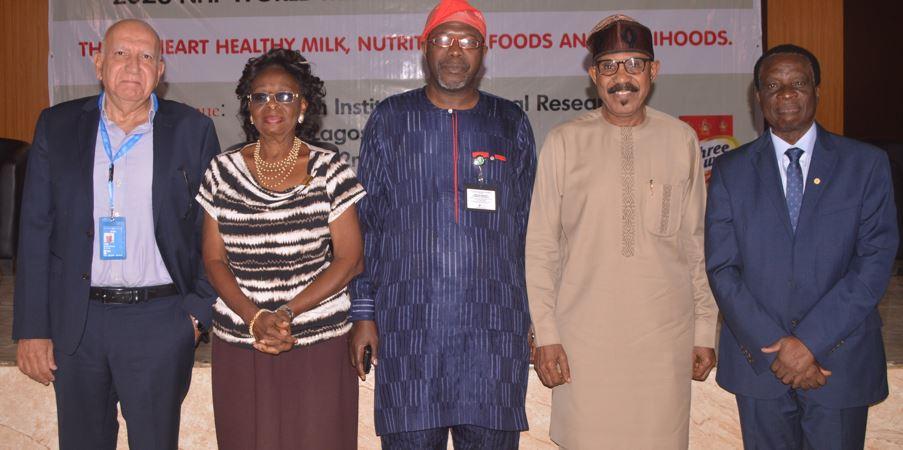
By Dickson Omobola, edited by Sola Ogundipe
As Nigerians joined the world to mark 2023 World Milk Day, stakeholders have decried the nation’s low intake of milk, saying per capita milk consumption is estimated at eight litres per year.
Speaking at a roundtable meeting in Lagos, themed: “Heart Healthy Milk, Nutritious Food and Livelihood,” they said eight litres per year is equivalent to 21.9mls of milk per day, which is below the global average of 44 litres per person per year and World Health Organisation, WHO, recommendation of 210 litres per person per year.
Recognising the importance of milk to healthy living, Executive Director of Nigerian Heart Foundation, NHF, Dr Kingsley Akinroye said: “Milk is food and it should be consumed right from the womb to adulthood because milk contains a lot of important nutrients such as carbohydrates, protein and vitamins. At NHF, we are also concerned about milk that is heart friendly. Such milk contains low fat, low sugar and low salt because these are the ingredients that are important for healthy living, especially the low-fat content.
“We are advocating for an investment in a dairy farm because it contributes a lot to the development of a country. You will find out that in countries where dairy farms are important, they live long. We feel that government at all levels should recognise it. Each local government should be able to have a dairy farm. Imagine if we do, there will be employment and children who have good nutrition will be raised.”
Akinroye stressed that if efforts were geared towards the improvement of dairy farming in the country, the importation of milk would decrease and milk would be affordable.
Speaking, Professor Olusola Olorunnisomo, who said poverty and cost were responsible for the low consumption of milk in Nigeria, urged the government to implement policies that would enhance nutrition and well-being.
He said: “One litre of milk costs N1,417, most Nigerians cannot afford it. There are also food habits. Nigerians are generally not milk-consuming people because there is a general lack of awareness of the benefits of milk consumption.
“Government policy determines what type of food a population eats. The policy environment is very important because what we eat is a major determinant of our health and well-being. Milk is important to us because it is loaded with vital nutrients. It is good for the child and adult and it is highly digestible. It contains lactose which is good for the brain.
“Since Nigeria is yet to meet up to the world average or WHO standard, milk consumption should be encouraged among Nigerians. Milk and other dairy products should form an integral part of the school feeding programme to build the dairy consumption culture among Nigerians.”
Disclaimer
Comments expressed here do not reflect the opinions of Vanguard newspapers or any employee thereof.